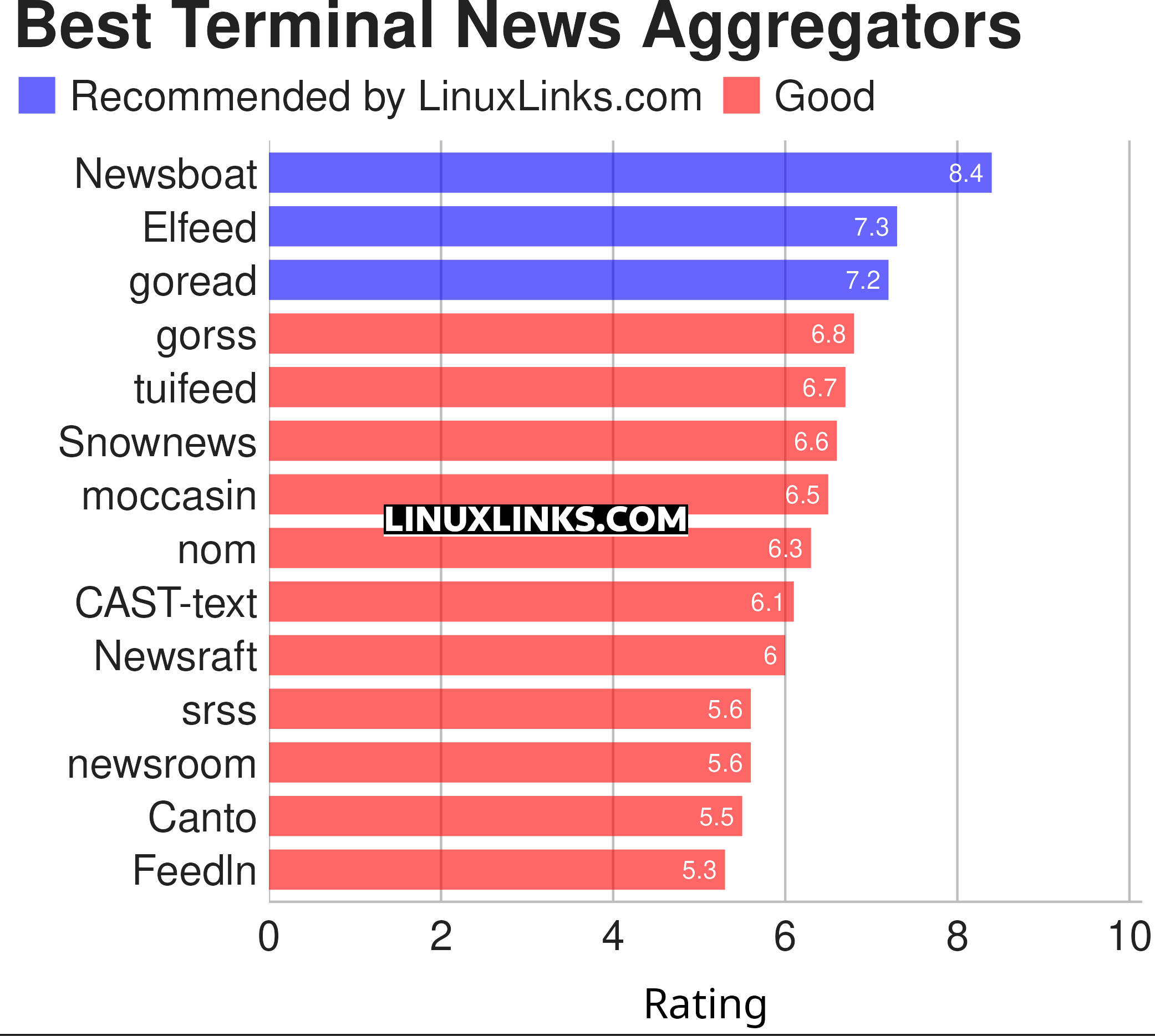A news aggregator is software which collect news, weblog posts, and other information from the web so that they can be read in a single location for easy viewing. With the range of news sources available on the internet, news aggregators play an essential role in helping users to quickly locate breaking news.
For individuals that read lots of weblogs, a news aggregator makes keeping track of them effortless, and particularly useful if the weblogs are only updated occasionally.
There are a number of different file formats which information publishers use. The most frequently ones are RSS and Atom. RSS is an acronym for Really Simple Syndication. It is a defined standard based on XML with the specific purpose of delivering updates to web-based content. In other words, RSS is a Web content syndication format.
This article features the finest terminal-based news aggregators. Only free and open source software is included here. Here’s our verdict captured in a legendary LinuxLinks-style chart.

Click the links in the table below to learn more about each aggregator.
| Terminal-Based News Aggregators | |
|---|---|
| Newsboat | Snazzy RSS feed reader |
| Elfeed | Extensible web feed reader for Emacs, supporting both Atom and RSS |
| goread | Go-based news feed reader |
| gorss | Simple RSS/Atom reader written in Golang |
| tuifeed | News feed reader with a fancy terminal user interface |
| Snownews | Text mode reader for RSS and Atom feeds written in C |
| moccasin | TUI feed reader for RSS, Atom, and (eventually) Podcasts |
| nom | RSS reader for the terminal written in Go |
| CAST-text | Full-text RSS terminal reader |
| Newsraft | Greatly inspired by Newsboat and tries to be its lightweight counterpart |
| srss | Simple command-line news feed reader |
| newsroom | Modern CLI to get your favorite news |
| Canto | Crank through feeds using a minimal, yet information packed interface |
| Feedln | Simple interface to view, update, and categorize feed |
This article has been revamped in line with our recent announcement.
 Read our complete collection of recommended free and open source software. Our curated compilation covers all categories of software. Read our complete collection of recommended free and open source software. Our curated compilation covers all categories of software. Spotted a useful open source Linux program not covered on our site? Please let us know by completing this form. The software collection forms part of our series of informative articles for Linux enthusiasts. There are hundreds of in-depth reviews, open source alternatives to proprietary software from large corporations like Google, Microsoft, Apple, Adobe, IBM, Cisco, Oracle, and Autodesk. There are also fun things to try, hardware, free programming books and tutorials, and much more. |
